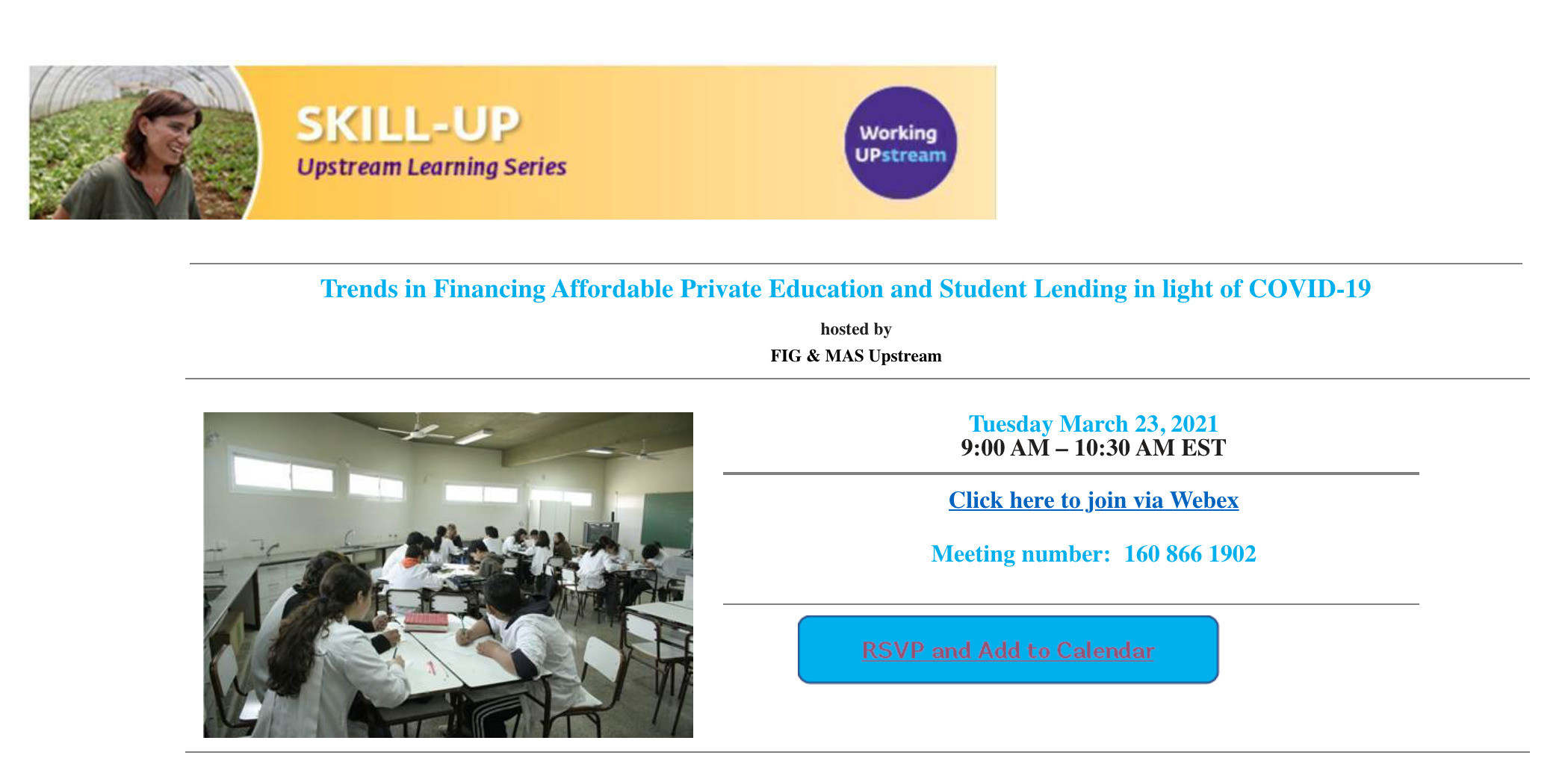Upstream Learning Series - Trends in Financing Affordable Private Education and Student Lending in light of COVID-19

On the 23rd March 2021 Andrew McCusker, Head of Opportunity EduFinance took part in an IFC panel hosted by FIG and MAS upstream.
Description
The global effects of COVID-19 are being felt throughout the education sector from pre-schools, K-12 and tertiary education. UNCTAD originally estimated a funding gap of USD 39 billion per annum in order to meet the Sustainable Development Goal in Education (SDG 4: to ensure inclusive and quality education for all by 2030 in low and lower-middle-income countries. Post COVID, this funding gap has been revised by UNESCO to $200 billion per year to meet the same goal. Many governments have increased spending, but few have prioritized education in national budgets, and most fall short of allocating the recommended 20% needed to bridge funding gaps.
Globally colleges and universities are either closed or learning has shifted to online modes in over 188 countries and approximately 225 million students in tertiary education have also been hit by the pandemic. The estimated learning losses are expected to be at least 30%, but students are facing more dire consequences, such as delayed exams, graduation and the resulting implications for job search and repayment of student loans. On the supply side, institutions are facing serious consequences as they switch to online modes of teaching given the effects of attrition, dropouts, and deferments.
The private sector can play a key role in closing both demand and supply side gaps, but access to financing remains a challenge. A critical way to strengthen the financing channels that lend to/ invest in private universities, vocational training institutes, ed techs and students includes mobilizing ‘smart’ private sector funding and enabling local financial institutions to play a significant role in growing the sector.
The learning series will invite panelists who are specialized in financing the private tertiary education sector and students who pursue higher education in emerging markets. They will discuss recent market trends (e.g. risks and opportunities) and how they finance the market gap.
What you will learn:
- What are some of the recent trends in the affordable private education space from the perspective of education institutions, training institutes, students and ed techs? How did COVID-19 change the landscape?
- How are these new trends being financed today and what are the gaps in the funding landscape? What roles can local financial institutions like banks and other specialized lenders play in closing this funding gap?
- Has this switch to home-based modes of learning increased or changed funding needs for various stakeholders for upskilling, infrastructure, and working capital needs?
- How can IFC leverage its role in preventing the challenges in the learning and education sector, that is further being exacerbated by COVID-19?
Opening Remarks:
Maria Paulina Mogollon, Principal Operations Officer, MAS Upstream
Closing Remarks:
- Adel Meer, Manager, FIG Upstream
Moderators:
- Nivanne Mortagy, Senior Investment Officer, FIG Upstream
- Mohammed Ali Khan, Senior Education Specialist, MAS
Panellists:
Andrew McCusker, Sandeep Aneja, Felipe Vergara and Naga Tan.